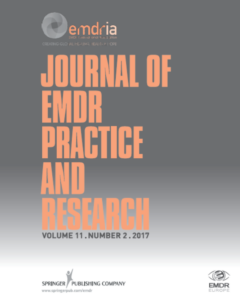How memory switches brain responses of patients with posttraumatic stress disorder (Cerebral Cortex Communications)
This study used fMRI and a novel correlation-based approach to show that PTSD patients exhibit opposing brain responses to traumatic versus daily memories, with these discrepancies lessening after successful EMDR therapy.
Read MoreIs EMDR effective in treatment of PTSD? (Evidence-Based Practice)
A 2018 meta-analysis of 14 RCTs compared the efficacy of CBT versus EMDR in relieving posttraumatic stress disorder (PTSD).
Read MoreEfficacy of EMDR Therapy on the Pain Intensity and Subjective Distress of Cancer Patients (Journal of EMDR Practice and Research)
Study to investigate the efficacy of EMDR therapy in treating pain and subjective distress of patients with cancer.
Read MoreClinical efficacy of EMDR in unipolar depression: Changes in theta cordance (Psychiatry Research)
EMDR may be efficacious in treating unipolar depression. The dorsolateral prefrontal cortex Theta Cordance may be linked to depression.
Read MoreThe Current Status of EMDR Therapy, Specific Target Areas, and Goals for the Future (Journal of EMDR Practice and Research)
There are differences as to how various international treatment guidelines judge the strength of the EMDR evidence base.
Read MoreA randomized controlled trial comparing the clinical efficacy and cost-effectiveness of eye movement desensitization and reprocessing (EMDR) and integrated EMDR-dialectical behavioural therapy (DBT) in the treatment of patients with post-traumatic stress disorder and comorbid (sub)clinical borderline personality disorder: Study design (BioMed Central Psychiatry)
Clinical efficacy and cost-effectiveness of integrated EMDR-Dialectical Behaviour Therapy for PTSD and Borderline Personality Disorder.
Read MoreFeasibility and potential effectiveness of an intensive trauma-focused treatment programme for families with PTSD and mild intellectual disability (European Journal of Psychotraumatology)
EMDR therapy for persons with mild intellectual disabilities or borderline intellectual functioning with PTSD.
Read MoreEmpirically supported psychological treatments: EMDR therapy (Oxford, 2020)
This chapter provides an overview of the current empirical support for EMDR therapy for PTSD.
Read MoreEmpirically Supported Psychological Treatments: EMDR Therapy (Oxford Academic, 2020)
The scientific support for EMDR’s efficacy is reviewed in comparison with trauma-focused comparator, as well as its mechanism of action.
Read MoreVerbal suggestions about treatment effectiveness do not modulate the effectiveness of a laboratory model of EMDR therapy: Results of two preregistered studies (PsyArXiv Preprints)
These findings corroborate the results of earlier reports, suggesting that the role of treatment expectations in EMDR therapy may be limited.
Read More



